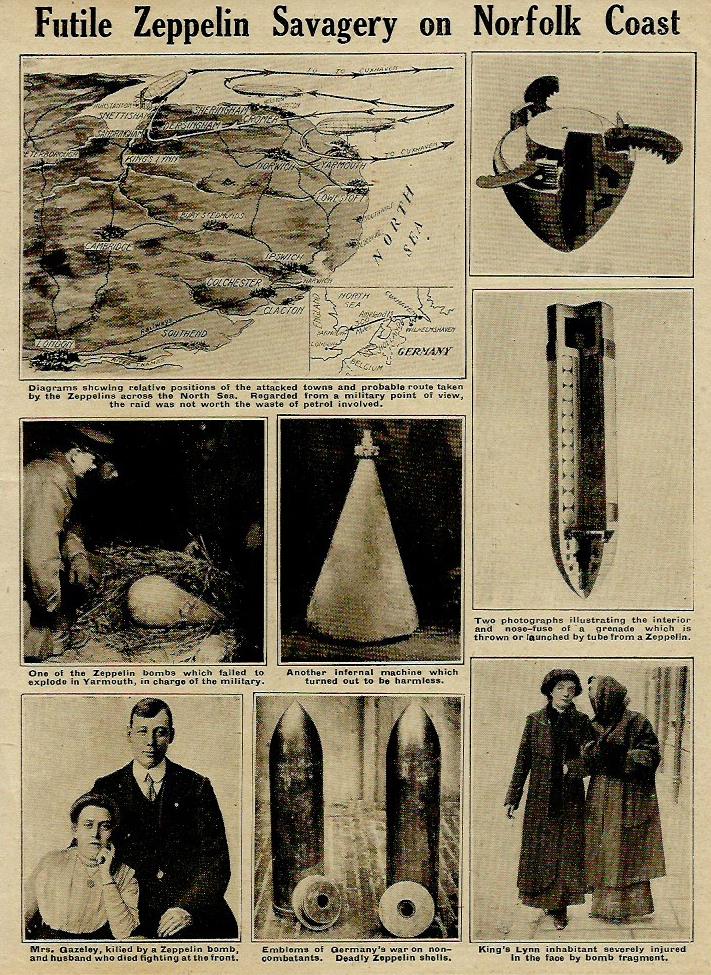ZEPPELINS, GOTHAS & 'GIANTS'
THE STORY OF BRITAIN'S FORGOTTEN BLITZ 1914-1918
19 January 1915
Bombed: Norfolk
With the Kaiser finally authorising the commencement of an airship bombing campaign of Britain on 9 January 1915, the German Navy launched their first successful raid ten days later. Zeppelin L 6 turned back early with engine problems, but L 3 and L 4 – M-class Zeppelins - reached England. Their plan was to strike targets around the River Humber, but bad weather forced both further south leading to attacks on East Anglia.
Zeppelin L 3, commanded by Kapitänleutnant Hans Fritz, came inland near Ingham, Norfolk. From the light of a parachute flare, the crew appear to have identified their location and Fritz selected Great Yarmouth as their target.
L 3 dropped its first bomb at 8.25pm, which fell on farmland at Little Ormesby, followed by another ten recorded in Great Yarmouth. As well as damage to buildings, the bombs claimed two lives - Samuel Alfred Smith, a 53-year-old shoemaker, and 72-year-old Martha Mary Taylor - and injured three.
Zeppelin L 4, commanded by Kapitänleutnant Magnus von Platen-Hallermund, crossed the coast near Bacton, Norfolk, but the crew struggled to identify where they were. Convinced they were on course for the Humber, L 4’s first bombs actually landed at Sheringham, followed by others at Thornham, Brancaster, Heacham, Snettisham and then a salvo of eight bombs on King’s Lynn. The bombs on this town also killed Percy Goate, aged 14, and Alice Maud Gazeley, aged 26, whose husband had been recently killed serving in France, and injured thirteen.
The RNAS flew no defensive sorties against the raiding Zeppelins; information about the raid reaching the RNAS base at Yarmouth only after L 3 had turned for home. When L 4 crossed the coast later, aircraft at the base were put on standby, but no further information as to the whereabouts of L 4 was received so aircraft remained grounded. Two RFC aircraft from Joyce Green, Kent, took off to patrol south of London, believing the Zeppelins were heading for the city. Both suffered engine problems and made forced landings.
It was the first and last time L 3 and L 4 raided England. On 17 February they encountered bad weather scouting over the North Sea and were forced down in Denmark.
Casulaties: 4 killed, 16 injured
Damage: £7,740
Follow Us
© Ian Castle 2021
